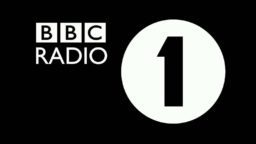Plays on the UK’s leading new music station, BBC Radio 1, are earning songwriters considerably smaller PRS For Music payouts than they were five years ago.
PRS is currently paying out £10.98 per minute when songs written by the UK collection/licensing society’s members are broadcast on the network.
That’s according to numbers revealed at an event held by PRS yesterday for managers in London entitled How To Maximise Royalty Income, which was attended by journalist and Head of Business Relations at Auddly, Helienne Lindvall.
Digging back through recent history helps us put that number into context.
According to online reports citing PRS data, back in December 2010, BBC Radio 1 was paying out £16.84 per minute to songwriters.
By December 2013, that had fallen to £14.91 per minute. And even in July 2016, Radio 1 was paying out £13.63 per minute.
A BBC spokesperson said: “The BBC pays PRS a blanket licence fee under arrangements in place since 2011. PRS sets its own distribution policy as determined by its distribution committee made up of publishers, songwriters and composers. It is incorrect to suggest that distribution rates have been agreed between PRS and the BBC.”
According to Rajar, BBC Radio 1 attracted an audience of 11.4m in Q4 2010 and 10.97m in Q4 2013.
In the latest Rajar quarter (Q4 2017), though, Radio 1’s reach stood at 9.84m.
That said, the Rajar audience fall at Radio 1 from December 2013 to December 2017, in percentage terms, is only 10.3%.
Radio 1’s percentage fall in per-minute pay to songwriters from Dec 2013 to April 2018 (ie. £14.91 to £10.98), however, is 26.4%.

On the other hand, BBC Radio 2 is actually paying out slightly more than it was previously in the same time frame: in December 2013, the station paid out £21.77 per minute to songwriters when their work was broadcast, while the latest stats show it is paying out £22.77.
This 2018 figure, however, has gone down since July 2016, when Radio 2 was paying £24.27 per minute.
(Radio 2’s Rajar figure in December 2013 was 15.5m, while in June 2016 it had dipped slightly to 15.3m. Its latest Rajar reach, in December 2017, was back up to 15.5m.)
BBC 6 Music was paying out £4.55 per minute to the PRS in 2013, but is now – according to the latest PRS stats – handing over £4.89.

The most recent long-standing blanket licence agreed between PRS, MCPS and the BBC expired at the end of 2016.
After the two parties failed to agree an extension, the matter was elevated to the UK Copyright Tribunal last year.
The worrying question for British songwriters here, of course: as Radio 1’s youthful audience continues to transition over to streaming services, to what extent are successful pop composers being financially compensated?
Interestingly, PRS For Music’s latest published annual figures show that the society collected £124.1m in 2016 from broadcast, of which £48.8m came from radio.
This was considerably higher than the £111.1m it collected from broadcast back in 2010.
The society says that in 2016, commercial radio revenues (ie. non-BBC radio) reached their highest value since 2008 (see below).

Music Business Worldwide




